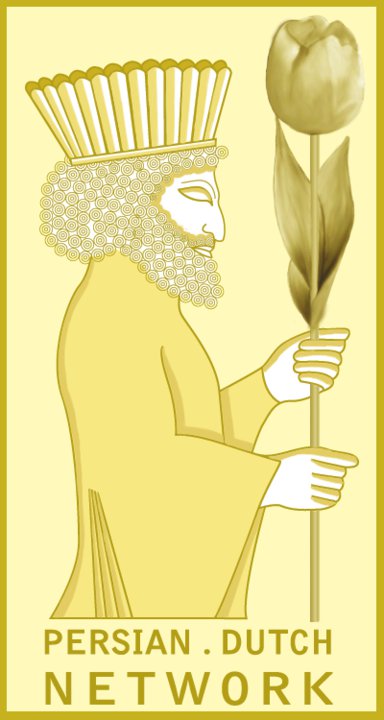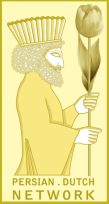Son of the Mullah
Nahid Perssons Sarvestani | Sweden | 2023 | 100 min.
In Persian and English (with English subtitles)
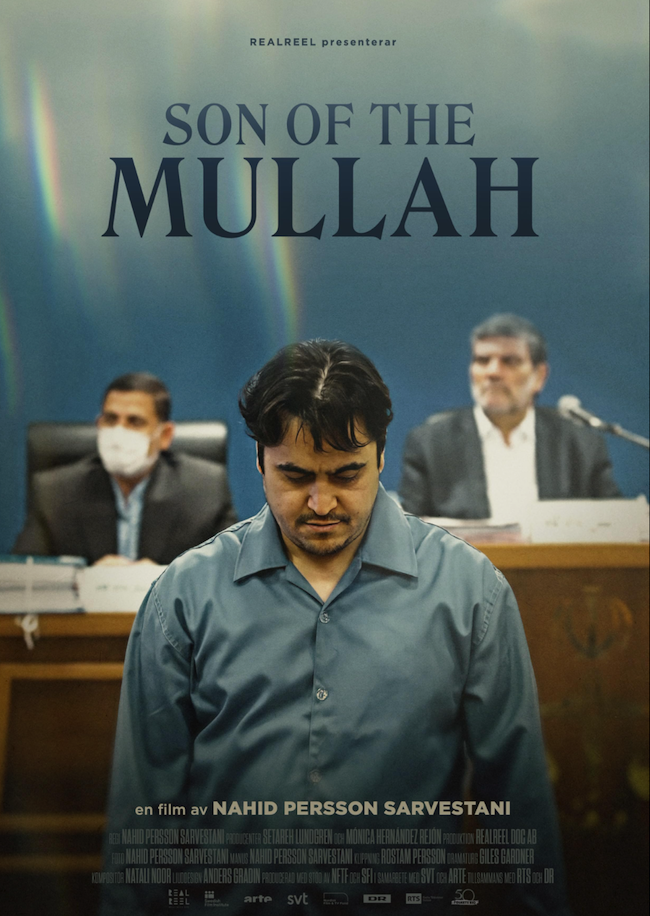
The Swedish-Iranian filmmaker Nahid Persson is known for uncompromisingly critical films about her native country. In her latest documentary, she focuses on the Iranian journalist Ruhollah Zam.
Like many of his colleagues, Zam operates from abroad, in his case France, due to the lack of press freedom in Iran. Drawing on secret sources and anonymous video footage, and constantly speaking on the phone from his small home, he exposes the corruption and hypocrisy of the Iranian regime. He does so at the risk of his own life and lives under permanent guard.
In matter-of-fact style but with mounting tension, the documentary shows Zam’s suffocating existence. In his world, everyone seems to be spying on each other—even fellow journalists don’t trust each other. The scandals are huge, the amounts of money embezzled astronomical, and the atmosphere is sometimes unbearably tense. Who is the mysterious millionaire from Australia? How reliable is Shirin, Zam’s intermediary? The film seems more like a spy thriller than a documentary. But tragically, it’s all too real.
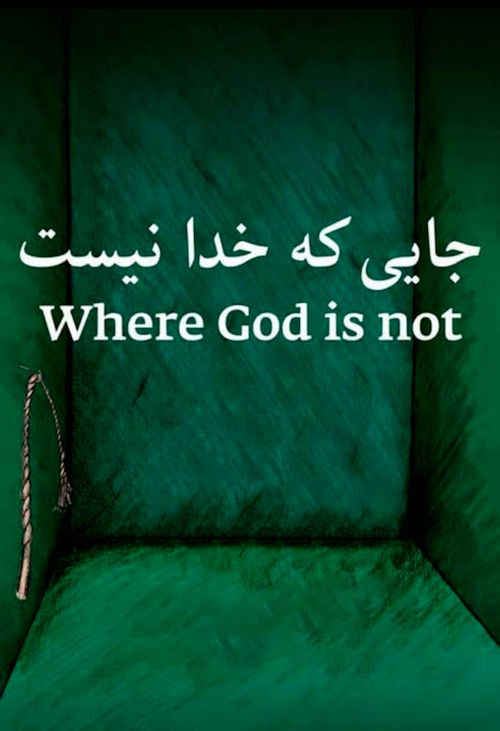
Where God Is Not
Mehran Tamadon | France | 2023 | 112 min | Dutch Premiere
Three former political prisoners bear witness to the interrogations, and the psychological and physical torture they were subjected to. We see them and director Mehran Tamadon recreating Iranian prison cells in deserted Parisian warehouses. After an unhurried start, things start changing fast in this powerful reimagining that provokes strong emotions. Some of the men were unable to withstand their mistreatment, and painful memories are unleashed.
Political activist Taghi Rahmani talks about the six months he spent in solitary confinement. Homa Kalhori, who later wrote A Coffin for the Living, explains the agony of “the coffin.” Businessman Mazyar Ebrahimi, who was falsely accused of spying by a competitor, ties the director to a torture bed to illustrate what happened to him.
Where God Is Not captures all these events in an observational but engaged style that also includes the director and his own motives. Is he asking too much of the three former prisoners? Is he overly idealistic? These questions prompt intense discussions. This film, which won the Prize of the Ecumenical Jury in Berlin, forms a diptych with My Worst Enemy, which is also being screened at IDFA this year.
A Band of Dreamers and a Judge
Hesam Eslami | Iran / France | 2023 | 84 min. | World Premiere
Language: Persian (with English subtitles)
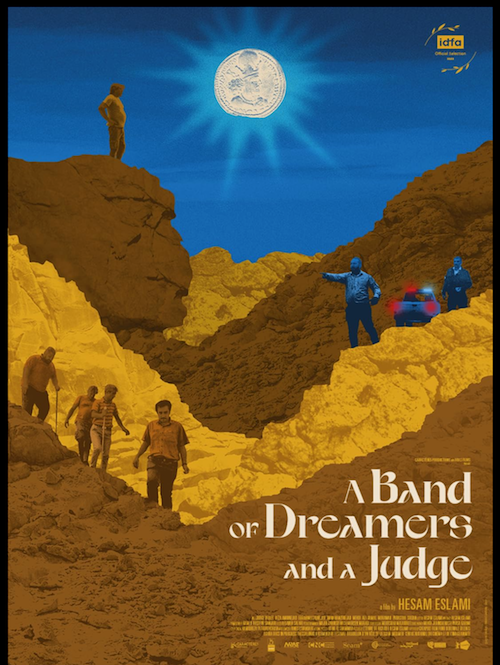
Synopsis
In a mountainous region of northern Iran, a group of men in their forties are looking for a solution to their financial woes. Business is bad, the economy is in the doldrums, and they would leave if they could—but that would also cost money. The only thing they’ve got left is to seek treasures. This isn’t an entirely unrealistic idea in Iran, where thousands of years of history and gold coins lie waiting to be discovered in ancient tombs, catacombs and caves, even though treasure hunting is strictly prohibited.
Filmmaker Hesam Eslami joins this group of friends, and follows them in their daily lives as they seek happiness. They are constantly discussing their treasure hunting plans, pondering the ins and outs of dowsing rods, metal detectors and mini cameras to find that coveted pot of gold.
Meanwhile, the police are on the lookout for illegal excavations, and the friends are caught red-handed. Eslami tries to explain to the judge that the excavation is only an innocent means to make his film a success. “Diggers are dreamers,” he states. But then it turns out that the men have not been entirely honest with him. Will their dreams remain unfulfilled? (TICKETS)
First Case, Second Case
Abbas Kiarostami | Iran | 1979 | 53 min.
Language: Persian
One of the boys in the classroom is a troublemaker. Every time the teacher faces the blackboard, the boy knocks rhythmically on the underside of his desk. When no one admits to being the culprit, the teacher sends seven pupils out of the class with an ultimatum: hand over the offender and return to class, or else stay in the corridor all week long.
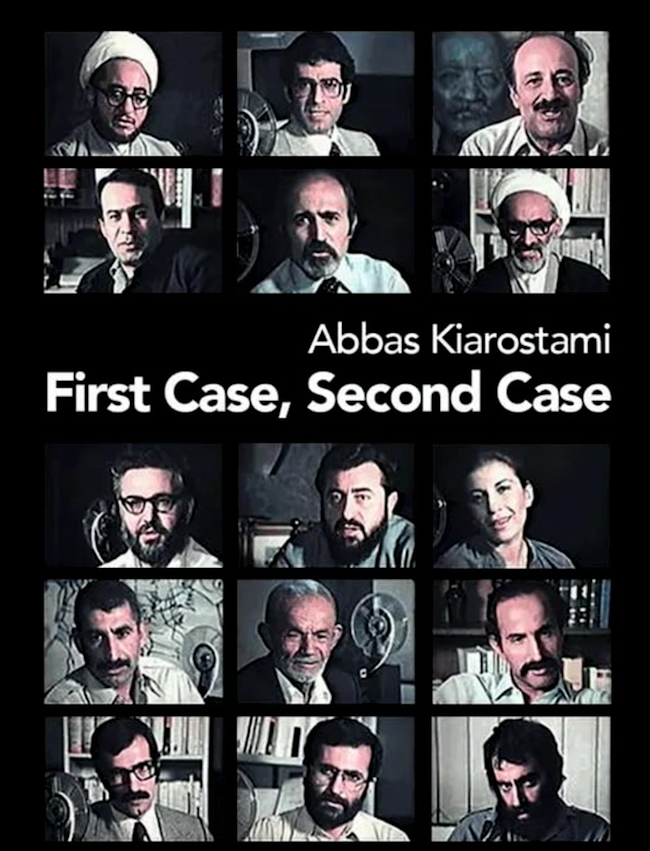
Abbas Kiarostami shot two versions of what happened next. In one version, one of the seven betrays the troublemaker; in the other, all seven show solidarity and remain silent. The director then screened the two versions for a group of administrators, religious leaders and intellectuals.
Kiarostami filmed First Case, Second Case in spring 1979, between the fall of the Shah of Persia (Iran) and the declaration of the Islamic Republic. It is striking that especially the new leaders—who are filled with revolutionary zeal—praise the resolve of the group who remain silent. These leaders would soon flip this conviction, however, once they had founded their theocracy. Kiarostami’s psychological test disguised as an instructional film was banned immediately after the premiere, and 40 years were to pass before it was screened again.
(TICKET)
Mast-del
Maryam Tafakory | United Kingdom | Iran | 2023 | 17 min. | No Dialogue | Dutch Premiere
The ominous howl of the wind whipping against the windows. The sharp-edged sound of a match being struck. A hand lights a cigarette, abstracted into negative, in shades of blue.
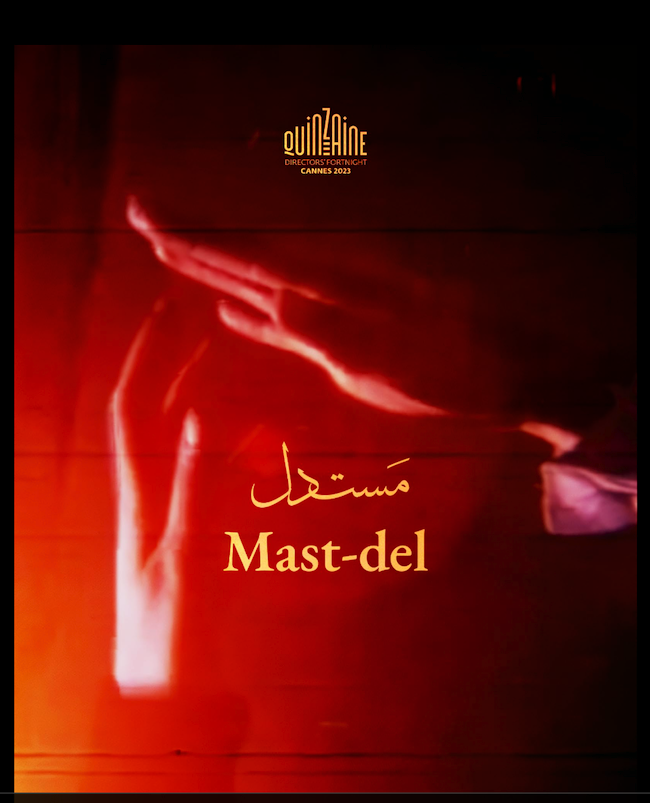
In her short video essay, award-winning Iranian filmmaker Maryam Tafakory creates an intimate inner world that moves between the concrete and the abstract. Two young women lie in bed; one describes how she once met a man in an online chat group for film-lovers. The man worked in a shop that sold banned movies under the counter. Their meeting in the park didn’t go as they had hoped.
The story unfolds in short captions superimposed on a collage of self-filmed material and found footage from old Persian films. Layer by layer, a moving reflection emerges on a reality that is extremely complex for Iranian women. It’s a reality in which personal freedom and desires no longer exist in public space, but only behind closed doors and in the imagination.
My Father
Pegah Ahangarani | Iran / Czech Republic | 2023 | 19 min. | Language: Persian (with English subtitles)
World Premiere | IDFA Competition for Short Documentary
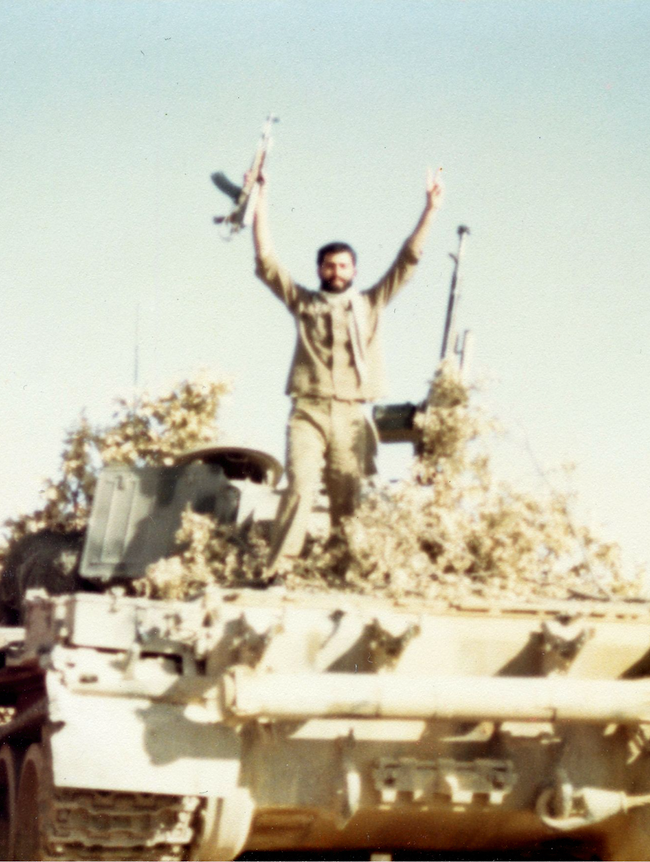
When Iranian actress and director Pegah Ahangarani (1984) was growing up, she thought every soldier she saw on television might have been her father. During her earliest years he was fighting at the front, and a portrait of Khomeini hung in a prominent place in the house. But one day the image of the Ayatollah disappeared without explanation and another photo took its place.
In this personal essay, Ahangarani (I Am Trying to Remember) talks about how the Iranian Revolution, and the turbulent times that ensued, affected her and her family. Illustrated with archive footage, news excerpts and family photos, she narrates her personal story, first from the point of view of a girl living in a world of fairy-tale heroes, then gradually shifting to the perspective of an adult who could interpret the complex events. With poetic tenderness, she explains how much the lives of generations of her family members and friends have been affected by the past 50 years of Persian history.
Talking with Rivers
Mohsen Makhmalbaf | Iran / United Kingdom | 2023 | 50 min. | Language: Persian (with English subtitles)
Dutch Premiere | Signed
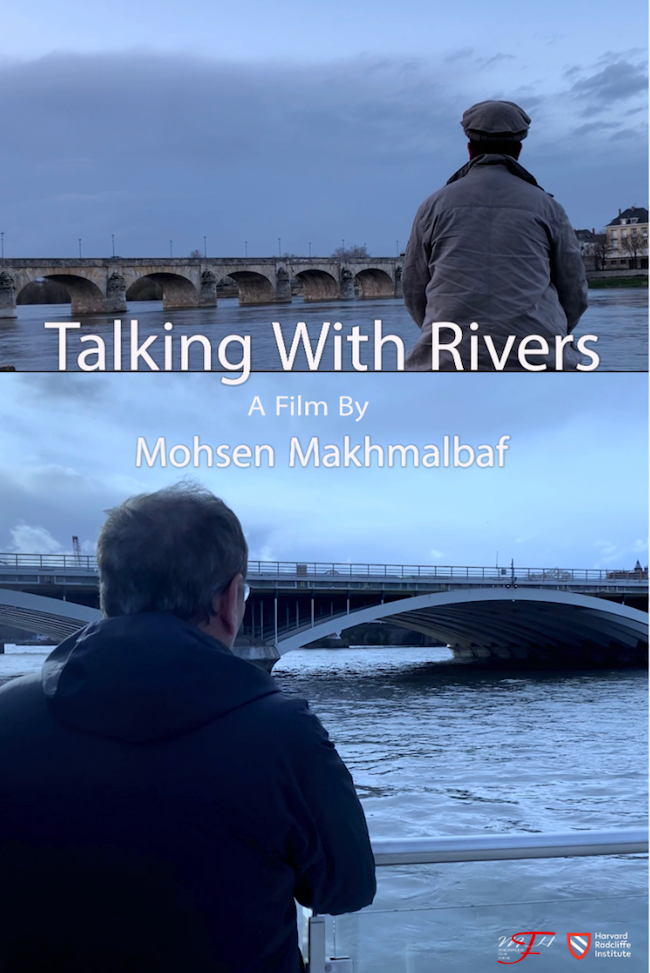
The neighbouring nations of Afghanistan and Iran (Persia) used to belong together: they were both parts of the historical region of Khorasan until 1747, when they separated. Talking with Rivers is a conversation between these two countries, through the voices of Iranian director Mohsen Makhmalbaf, who has made ten films in and about Afghanistan, and of Afghan actor Jawanmard Paiez.
Their dialogue explores the violent history of the two countries—all those invasions by foreign powers, all those refugees, all that repression by mullahs or the Taliban. Why is it, exactly, that they were unable to come together? “Oh brother, we were separated and you were destroyed,” they both say.
Their exchange is intercut with marvelously apt clips from films by Makhmalbaf himself (including Kandahar and The Cyclist) and by his daughters Samira and Hana (At 5 in the Afternoon and Buddha Collapsed Out of Shame). With this, Talking with Rivers becomes an impressive journey through the filmography of the Makhmalbafs, as well as a chronicle of a tormented region.
Tehran Has No More Pomegranates!
Massoud Bakhshi | Iran | 2006 | 68 min.
“All the characters and events in this film seem to be real, but it’s not true!” reads a disclaimer that appears right after the opening credits of Massoud Bakhshi’s wayward portrait of Tehran. By then, the director has already read aloud his letter to the chairman of the Iranian film fund, in voice-over, stating that he has not been able to complete his documentary on Tehran for various reasons—mostly, as he points out towards the end of his film, because making it would be a waste of time.
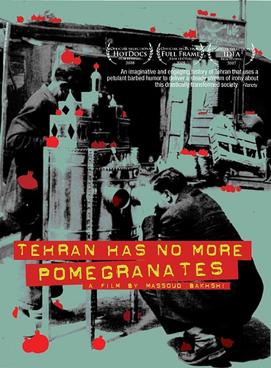
Instead, Bakhshi treats us to an intelligently edited musical compilation of all the archive footage he collected and the images he shot of the city over the past five years. Starting from the beautiful village it once was (where, according to an account from the 13th century, exceptionally delicious pomegranates grew), the film skips between the city’s past and present.
The journey takes us through various oppressors, collective opium addiction, the Tehran Conference and the Islamic Revolution to the explosive growth of the metropolis and the current transportation problem. What makes Tehran stand out today? Being on top of the list of most polluted cities in the world.
(TRAILER & TICKET)
Follow PERSIAN DUTCH NETWORK : Facebook | Twitter | Telegram
For the free monthly newsletter please send us an e-mail:
info [at] persiandutch.com
